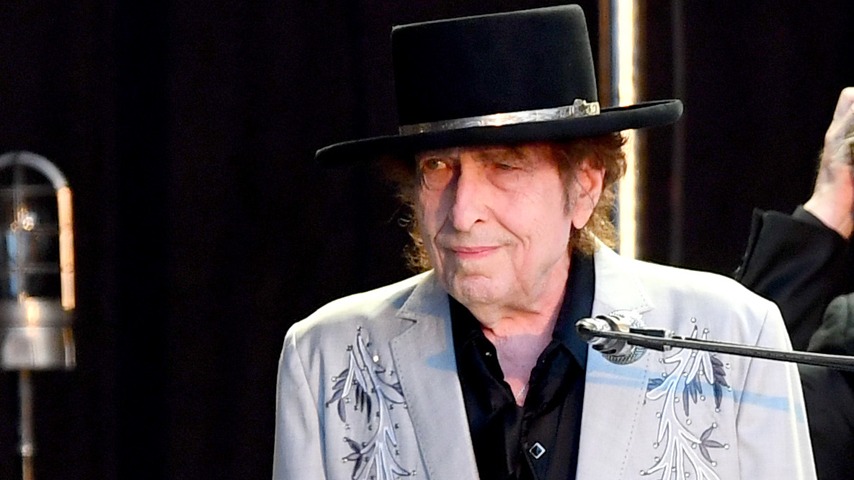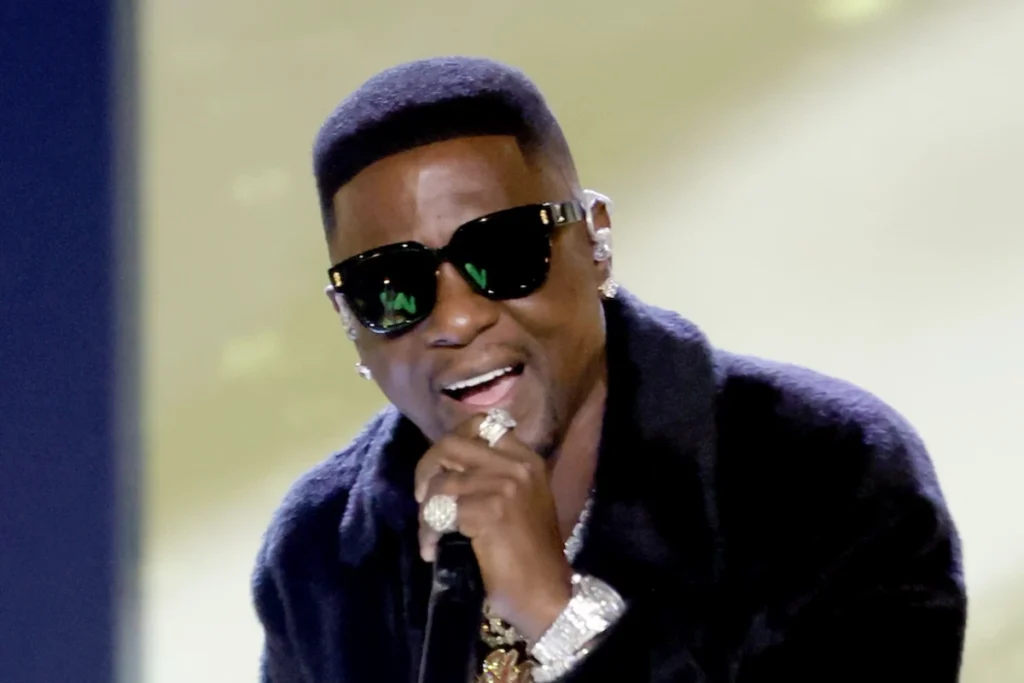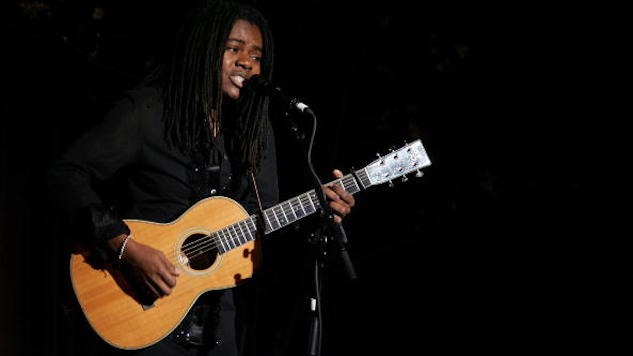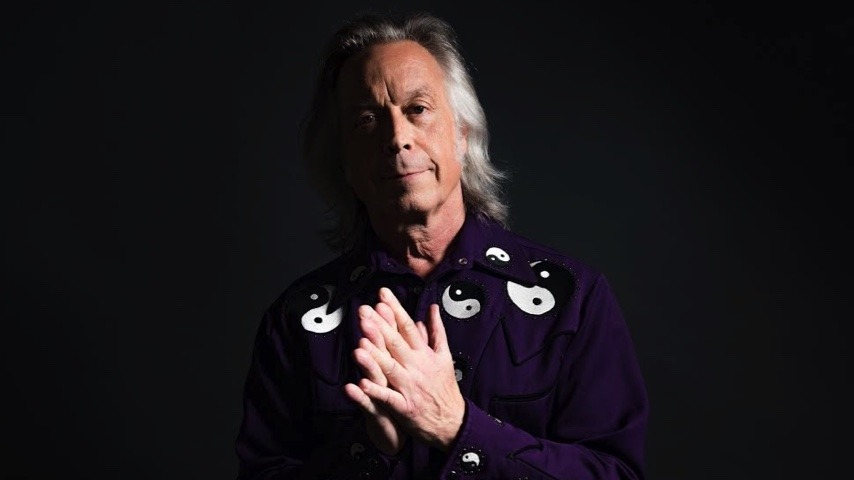How appropriate that Bob Dylan is back, in the midst of a global pandemic and deepening civil rights crisis, with his first album of original material in eight years. There’s something almost reassuring about a musician who has remained willfully opaque for decades reemerging at this particular moment to croak existential riddles over hot blues licks.
It’s tempting to see Rough and Rowdy Ways as one of those late-career ruminations on mortality that often seem to come from musicians of a certain age, or a full-circle accounting that reconnects Dylan, now 79, with his early days as a folk singer with a socially conscious bent. On the surface, the album could be either of those things, or both: After all, he gives over nearly 17 minutes of his 39th studio LP to a single song about the day that John F. Kennedy was assassinated, in 1963, when the singer was 22. Yet the idea that he’s revisiting his youth, or settling his affairs, is too simple, too predictable, for a wily contrarian like Dylan. Since when has he ever done the obvious thing?
Indeed, his latest comes after three albums spent rummaging around in the American songbook, an exercise that amounted to a gracious courtesy call from a guy who knows a few things about writing songs that endure. It’s hard to say what effect, if any, burrowing into those touchstone tunes has had on his own writing. Rough and Rowdy Ways simply sounds like Dylan, at his most Dylan-esque. These 10 tracks are steeped in American history, classical symbolism and biblical imagery, to say nothing of the literary asides, pop-culture references and musical allusions, from Shakespeare and William Blake to Ginsburg, Corso and Kerouac, Indiana Jones to Altamont, Chopin to Charlie Parker to “them British bad boys, the Rolling Stones,” as Dylan puts it on opener “I Contain Multitudes.”
It’s a pensive, torchy song that puts Dylan’s voice right up front, which makes sense: The tune is perhaps the crux of the album, and maybe even his career: Dylan has always contained multitudes, from protest songs to Christianity to winning the Nobel Prize for literature, and he’s bristled over the years at attempts to define—and thereby confine—him as an artist. (That’s why we didn’t give this album a numerical score: grading Dylan, on an album like this one, just feels reductive.) He writes songs, and he sings songs, and the rest amounts to a confluence of outside perspectives while he’s busy throwing shadow puppets in the far corners of his imagination.
One of the multitudes in evidence on Rough and Rowdy Ways is a subtle, dry wit. Dylan has always been funny, though it came out in more acerbic ways when he was younger. Now he tends more toward bemusement, as if he’s reveling in his role as an unreliable oracle whose every abstruse prognostication sparks discussion about what he really means.
Dylan’s wry sensibility pops up from line to line throughout, and underpins the entirety of the mordant “My Own Version of You” as Dylan’s narrator combs “morgues and monasteries / Looking for the necessary body parts” to build a creature “who feels the way that I feel.” The song is taut with glimmering haunted-house guitar chords that glide along with a descending bassline behind Dylan’s ground-glass voice. It’s one of two speeds on Rough and Rowdy Ways, which alternates between moody and atmospheric and crackling 12-bar blues. There are more of the former, including “Murder Most Foul,” the track about Kennedy. Dylan delivers five lengthy verses, with no chorus, over solemn piano flourishes and sweetly mournful strings, and if 17 minutes of that sounds like a big bite to swallow, the song is simple enough to be meditative, and elegant enough, as it unspools at a stately pace, to be deeply, unexpectedly moving.
The handful of turned-up blues numbers offer a contrast to the more reflective songs. Like any good bluesman, Dylan mixes sacred and profane on “Goodbye Jimmy Reed,” a tribute to the mid-20th-century singer and guitarist that weaves together spiritual references and bawdier fare over a propulsive beat and raucous harmonica, accented with a flashy guitar turnaround at the end of each 12-bar figure. The bump-and-grind burlesque-show riff on “False Prophet” is a lean piece of work, and Dylan sounds agile and combative as he rolls out inscrutable lyrics through 10 scrappy verses about, well, whatever they’re about. “I ain’t no false prophet / I just know what I know,” he rasps.
If “I Contain Multitudes” amounts to an executive summary of Rough and Rowdy Ways, “False Prophet” contains the caveat, and it’s an important one. “You don’t know me darlin’ / You never would guess / I’m nothing like my ghostly appearance would suggest,” he sings, drawing out the last few syllables with a sly, knowing air. Only Dylan can say for sure whether the line is autobiographical, or even literal, but in any case, he’s right—and he has been since 1962.
Eric R. Danton has been contributing to Paste since 2013, and writing about music and pop culture for longer than he cares to admit. Follow him on Twitter or visit his website.




